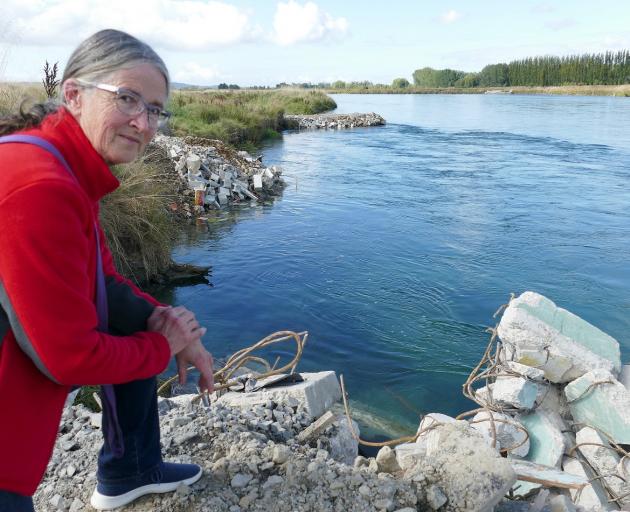

David Clark
MP
Being the minister of commerce and consumer affairs is not normally a job that endows the holder of that portfolio with many headlines.
But for the current minister, Dunedin Labour MP David Clark, 2022 was the exception to that rule.
Labour’s campaign promises in 2020 included a pledge to tackle what it has dubbed "the supermarket duopoly", where the two main grocery chains control both where New Zealanders can do their weekly shop and - most crucially - the supply of foodstuffs and other products to supermarkets.
Last year Dr Clark received the Commerce Commission’s draft of its market investigation and then asked his officials to revise some of the commission’s recommendations which he did not feel went far enough.
This year Dr Clark has introduced both the Commerce (Grocery Sector Covenants) Amendment Bill, which aims to free up banked land for potential competing supermarket sector players to set up shop, and the Grocery Industry Competition Bill, which will create the role of a "grocery commissioner" to police the sector, and also attempts to restructure how the wholesale grocery market works.
Dr Clark has also repeatedly warned Foodstuffs and Woolworths that if he does see them change their ways he will use regulation to force them to do so.
His new laws are yet to be passed and those totting up the cost of a supermarket shop might feel little has changed, but as inflation continues to soar and a recession looms, consumers in 2023 and beyond might just be thankful for the work Dr Clark did in 2022.
- Mike Houlahan

Paddy O’Brien
Community advocate
It has been a busy year for Paddy O’Brien.
The former international rugby referee not only travelled to England to be referee manager at the Commonwealth Games, but was also elected president of the Invercargill Licensing Trust board.
Mr O’Brien, who has been a member of the trust since 2016, said he was honoured and excited by the challenge.
"I will only make one promise to you and that is that I will give 100% and I ask in return that you give it 100%," he said at the inaugural board meeting in October.
A "born and bred" Southlander, Mr O’Brien has also been involved in community charities and organisations, including being a member of the Hawthorndale Care Village Charitable Trust.
He said he believed the project would be an evolutionary step forward for aged care in New Zealand as it would follow a social, rather than a traditional, institutional model of care, allowing residents to live as normal a life as possible.
The village would be a highlight for him as work at the site started late last year after five years of planning, he said.
"I’ve been incredibly busy and working really hard - but I do feel I am a lucky man to be able to have all those hats."
- Luisa Girao

Nobby Clark
Invercargill Mayor
The new Mayor of Invercargill had what can be a called a roller-coaster ride this year.
When the year started, Nobby Clark doubted he would finish his term as Invercargill’s deputy mayor due to the amount of frustration he felt.
He even resigned the position in March but made a U-turn a few days later, stating there was still work to be done.
During his first term as councillor, he repeated several times he would not run for a seat council again or mayoralty - but he caught everyone by surprise in May when he announced his bid for the mayoralty, which then became reality.
In October, he took the top job for Invercargill, ousting the country’s longest-serving mayor, Sir Tim Shadbolt.
More than 50% of eligible voters took to the polls to herald in a new era for the city.
"I feel pleased as Invercargill people understood I want the city to move forward; that I’ve done my research and don’t fluff around," he said at the time.
He was also pleased when his council backed his plans to accelerate the construction of a new building for the Southland Museum and Art Gallery.
"The people of Invercargill have been asking for a new museum for a long time and it’s only right that we do everything in our power to provide that. I have complete confidence that this can be done."
- Luisa Girao

Suzanne Schofield
Good neighbour
She saw something and said something, but sometimes things take a while to come down the river.
The contribution that Suzanne Schofield, of Balclutha, made to Otago last year began in 2021.
Mrs Schofield saw demolition rubble dumped in the Clutha River, feared it could have negative effects on resident wildlife, and contacted the Otago Regional Council and the Otago Daily Times.
The rubble was removed 95 days later, but the after-effects of the incident on the council were greater and perhaps more lasting.
It was 475 days after Mrs Schofield reported the pollution that in June of this year retired High Court judge Sir Graham Panckhurst’s damning report on the council’s response was released to the public.
Sir Graham was asked to investigate after councillors learned an Environmental Protection Authority (EPA) investigation was hindered when council staff declined to co-operate.
The EPA was brought in weeks after the dumping because council staff might have been partly to blame for it.
By the time Sir Graham was brought in to investigate, the relationship between councillors and staff was strained.
He concluded the council had acted against its statutory obligations of transparency and that advice and information was not shared willingly nor accurately and promptly.
The council’s mistakes around cleaning up the river in a timely fashion and ensuring staff gave evidence in the EPA investigation were significant as were the consequences, he said.
However, his interviews with staff revealed a rift between the two sides of the organisation; staff felt councillors were straying into operational matters and councillors felt staff were trying to influence strategy and policy.
The chief executive at the time, Sarah Gardner, had left the organisation by the time Sir Graham’s report came out.
Interim chief executive Dr Pim Borren said most of Sir Graham’s recommendations had been addressed through changes in internal processes.
Time will tell.
- Hamish MacLean












